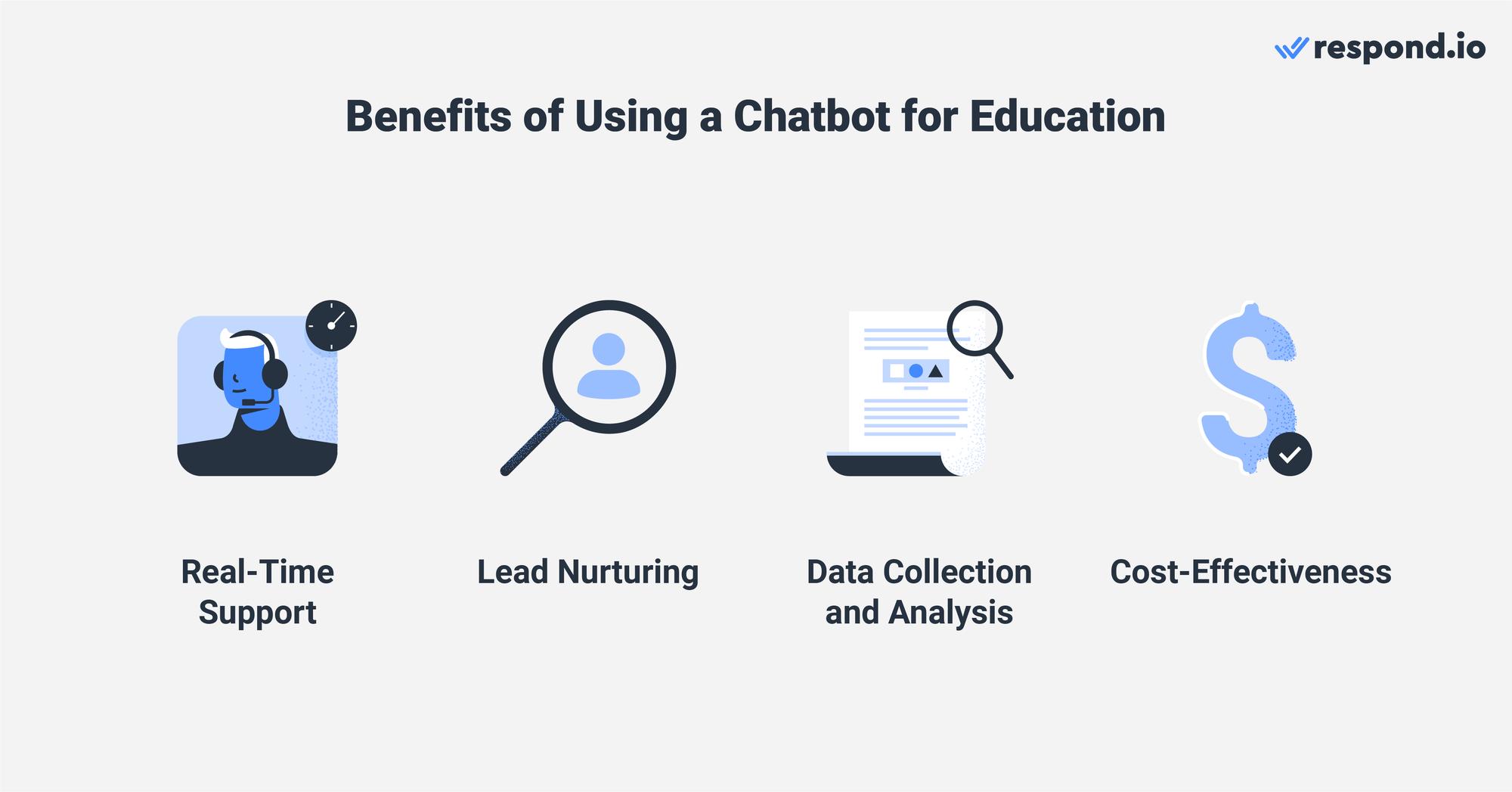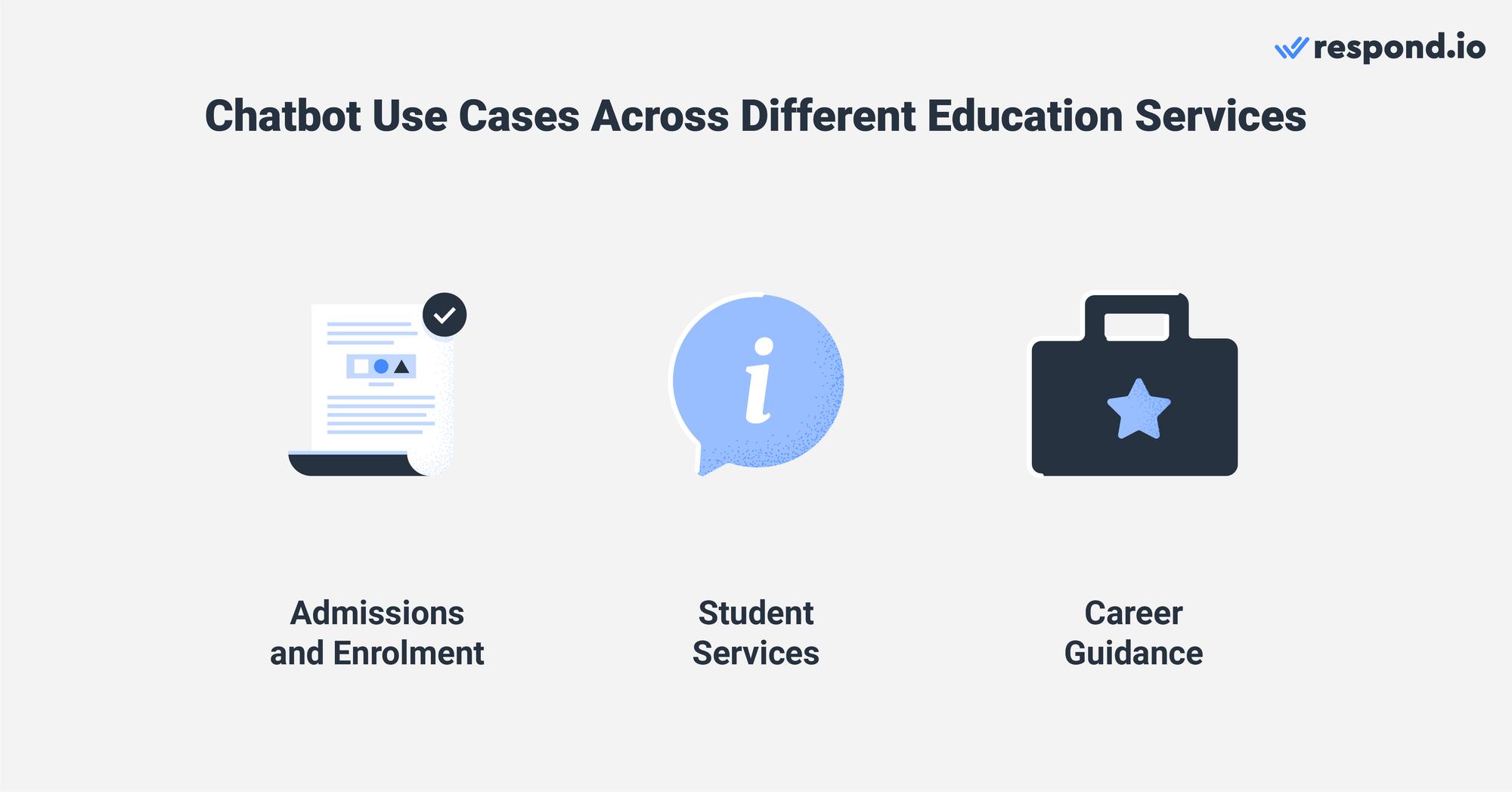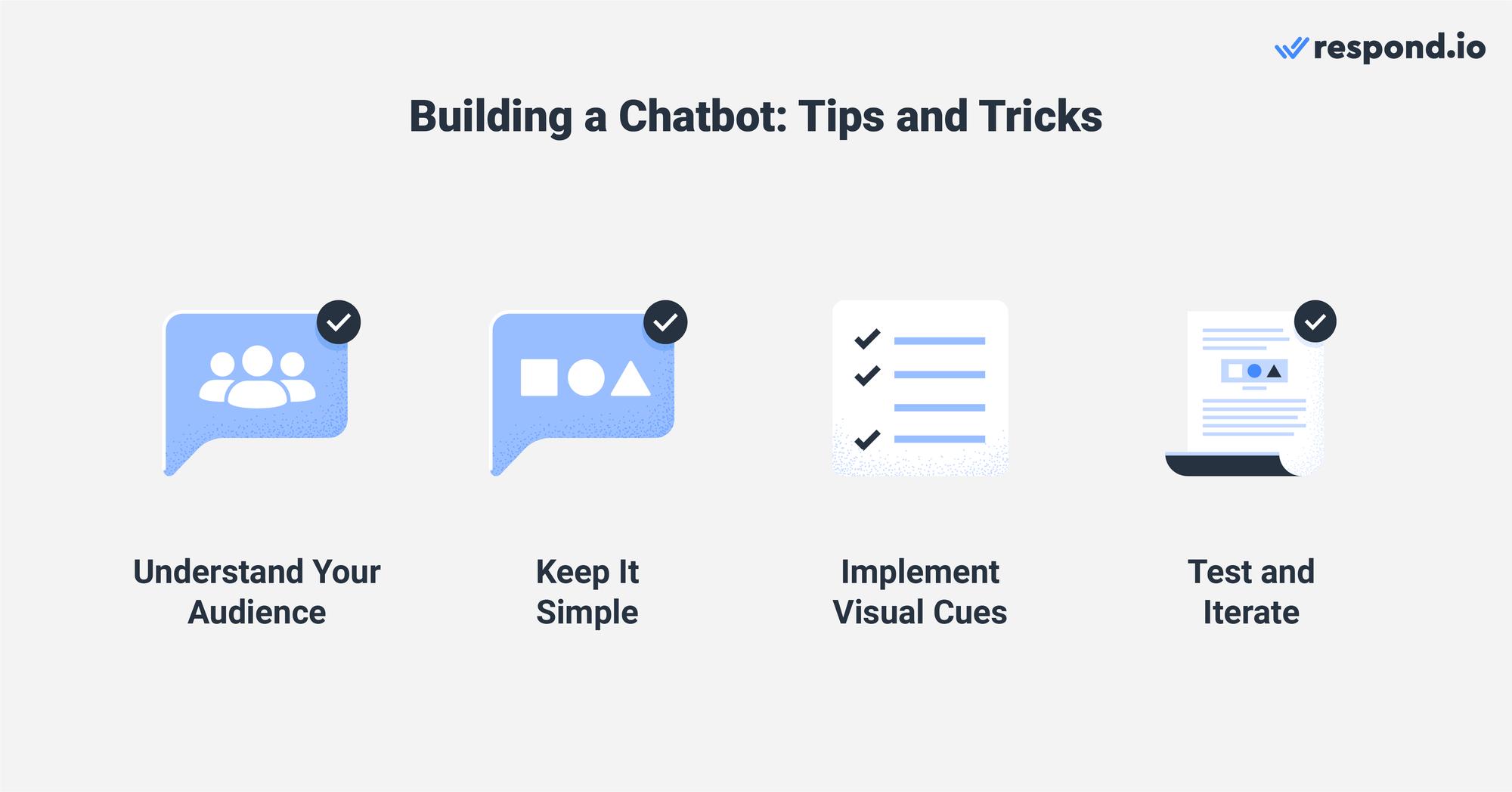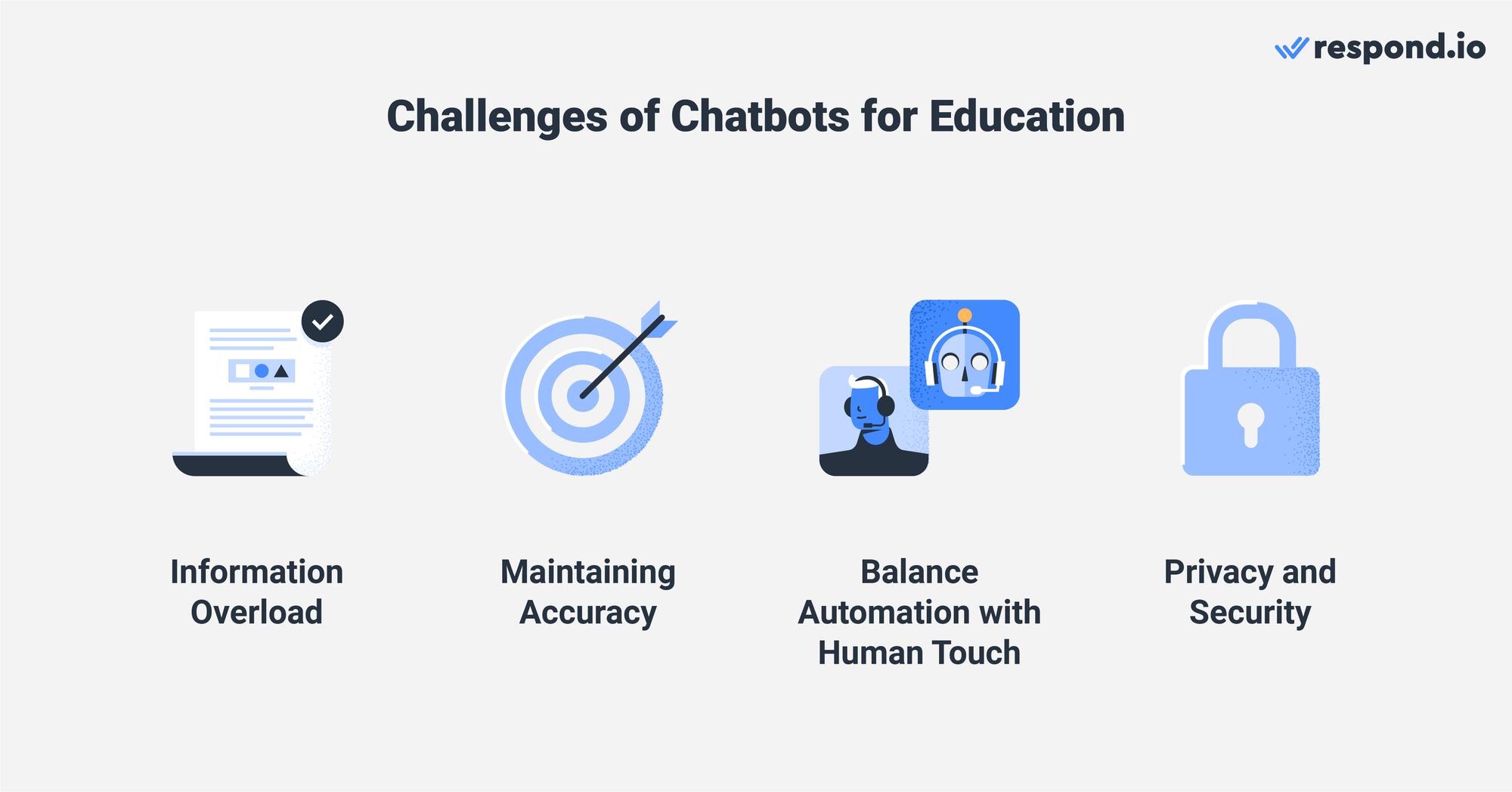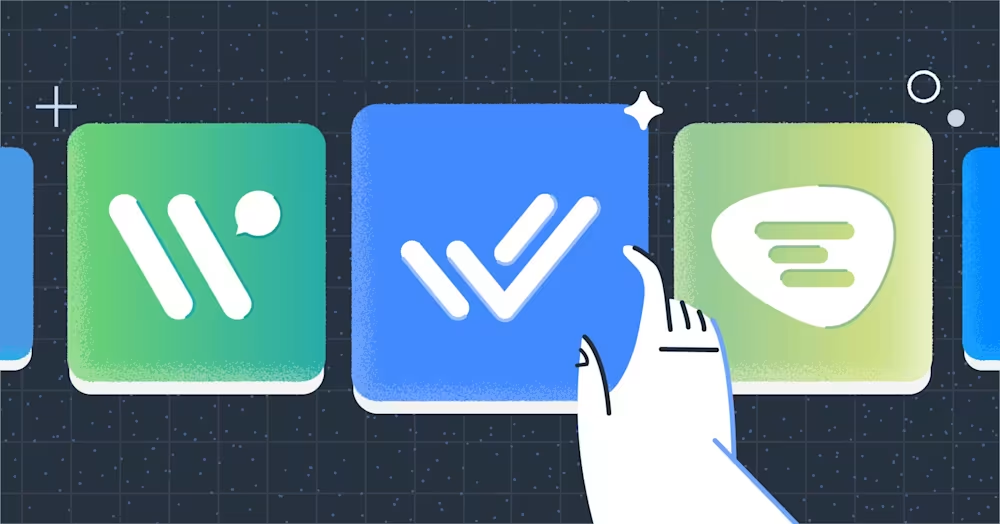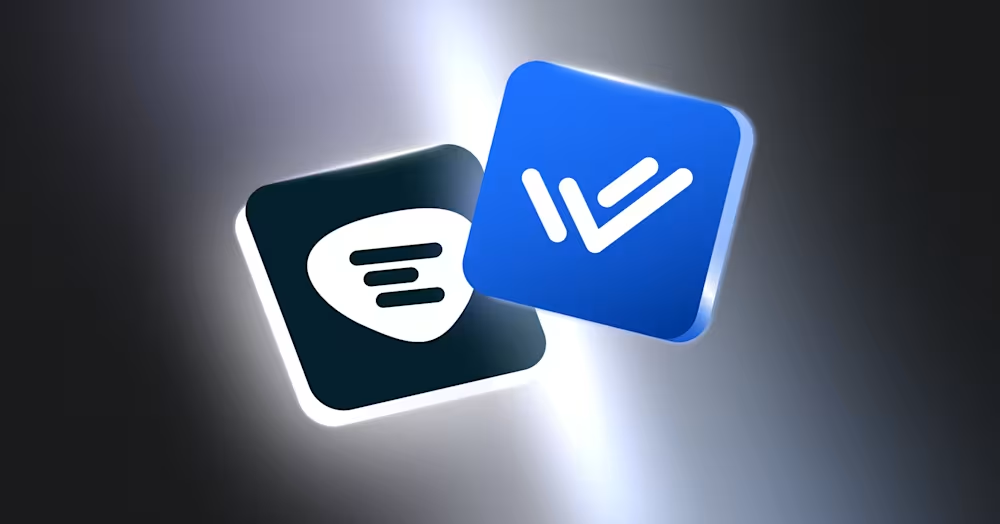Mucho más que un complemento de servicio al cliente, los chatbots en educación están revolucionando los canales de comunicación, agilizando las consultas y personalizando la experiencia de aprendizaje para los usuarios. Para las instituciones que ya están familiarizadas con las ventas conversacionales y el soporte, aprovechar el potencial de los chatbots podría catapultar sus servicios educativos al siguiente nivel. Aquí encontrará los beneficios, casos de uso, principios de diseño y buenas prácticas para los chatbots en el sector educativo, predominantemente para instituciones o servicios centrados en la interacción B2C. Si estás comenzando a considerar un chatbot para la educación o buscando optimizar uno existente, este artículo es para ti.
Chatbot para la educación: una introducción
Un chatbot para la educación es un software especializado en inteligencia artificial (IA) diseñado para simular conversaciones con los usuarios, proporcionando respuestas automatizadas a sus consultas. En el contexto del sector educativo, estos chatbots están diseñados para satisfacer las necesidades específicas de los estudiantes, educadores y personal administrativo.
Veamos por qué los chatbots se están volviendo tan populares en la industria educativa.
Beneficios del uso de un Chatbot para la educación
Entender por qué los chatbots son críticos en un contexto educativo es el primer paso en la realización de su propuesta de valor. He aquí algunos beneficios clave.
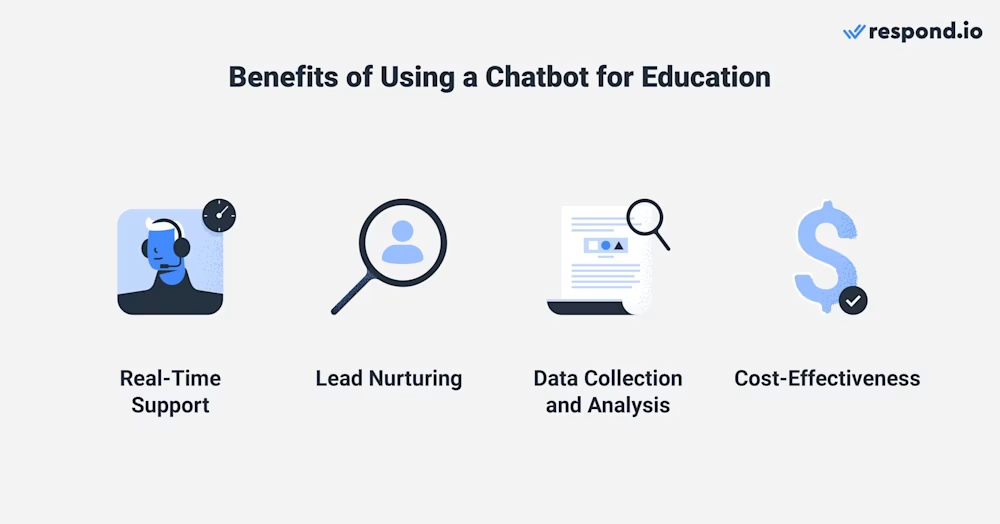
Soporte en tiempo real
En el entorno educativo a un ritmo acelerado, es crucial proporcionar asistencia instantánea. Los chatbots destacan al ofrecer apoyo inmediato las 24 horas, ayudando a los estudiantes con sus consultas y dirigiéndolos a los recursos apropiados.
Nutrición de Clientes Potenciales.
Para los servicios educativos que buscan ampliar su alcance y matrículas, los chatbots son generadores efectivos de leads. Al manejar las consultas y dirigir a los clientes potenciales prometedores hacia representantes humanos, los chatbots optimizan el proceso de admisión y aumentan las tasas de conversión.
Recopilación y análisis de datos
Los chatbots son recolectores de datos excepcionales. Al analizar los datos de las conversaciones, las instituciones educativas pueden obtener información sobre las preferencias de los usuarios, los problemas y las consultas más populares, lo que ayuda en la toma de decisiones y en la estrategia.
Efectividad de costes
Desplegar un chatbot reduce significativamente el costo asociado con el soporte al cliente y la generación de clientes potenciales. Esto asegura un retorno de inversión sustancial, especialmente para las instituciones con demandas en línea en crecimiento.
Convierte las conversaciones de los clientes en crecimiento empresarial con respond.io. ✨
¡Gestiona llamadas, chats y correos electrónicos en un solo lugar!
Chatbot para la Educación: Casos de Uso
La versatilidad de los chatbots permite una gama de aplicaciones en servicios educativos. Adeel Akram, Senior Account Executive for respond.io, destaca los prominentes casos de uso que encontró en el campo de la educación.
"Los chatbots tienen un doble propósito en la educación: apoyar las consultas de los estudiantes sobre temas como cambios de alojamiento, admisión o ayuda financiera y convertir leads en un entorno competitivo."
“Con muchas instituciones que ofrecen programas similares, como las numerosas universidades de Malaysia presentando MBAs (Master of Business Administration), adquirir clientes se convierte en un desafío. "Los chatbots surgen como herramientas cruciales para gestionar eficientemente las consultas y destacarse en un campo competitivo", agregó.
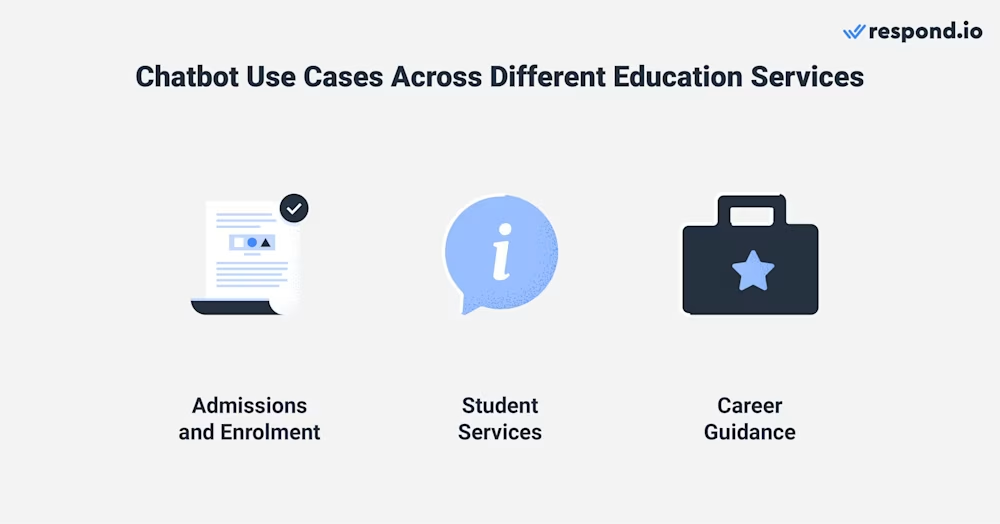
Admisiones y matriculación
Respondiendo a las posibles consultas de los estudiantes sobre cursos, admisiones y el proceso de solicitud, los chatbots simplifican y aceleran el proceso de matriculación.
Servicios de estudiantes
Los chatbots pueden ayudar a los estudiantes inscritos con una variedad de servicios, incluyendo apoyo académico, información del campus y actividades extracurriculares, mejorando la experiencia educativa general.
Orientación profesional
Chatbots especializados en servicios de carrera pueden servir como consejeros profesionales personalizados y ayudar a los estudiantes a identificar sus fortalezas, explorar opciones de carrera y buscar oportunidades de empleo.
Cómo construir un Chatbot para Servicios de Educación
Comienza eligiendo una plataforma de creación de chatbot. Recomendamos el uso de respond.io, un software de gestión de conversaciones de clientes propulsado por AI. Puedes empezar con una prueba gratuita y luego actualizar al plan que mejor se adapte a las necesidades de tu negocio.
El chatbot de Respond.io se llama Agente de IA. Es un agente virtual súper rápido que puede responder con precisión a las consultas de los clientes. Para asegurar esto, basta con asegurarse de que lo entrene con sus fuentes de conocimiento, como catálogos de cursos y aulas, políticas y procedimientos.

Una vez que estés satisfecho con tu agente de respuesta de IA, úsalo en un flujo de trabajo. Dependiendo de su objetivo, diseñará el flujo de trabajo de forma diferente. Tenemos amplia información sobre temas relacionados con chatbot, como cómo automatizar la recogida de información de contacto y cómo maximizar el potencial de servicio al cliente.
Antes de publicar tu primer chatbot, hay algunos consejos y trucos que debes tener en cuenta.
Construir un Chatbot para la educación: Consejos y trucos
Desarrollar un chatbot para servicios educativos tiene tanto que ver con el diseño del frontend como con la lógica del backend. Así es como asegurar que tu chatbot sea fácil de usar y eficaz.
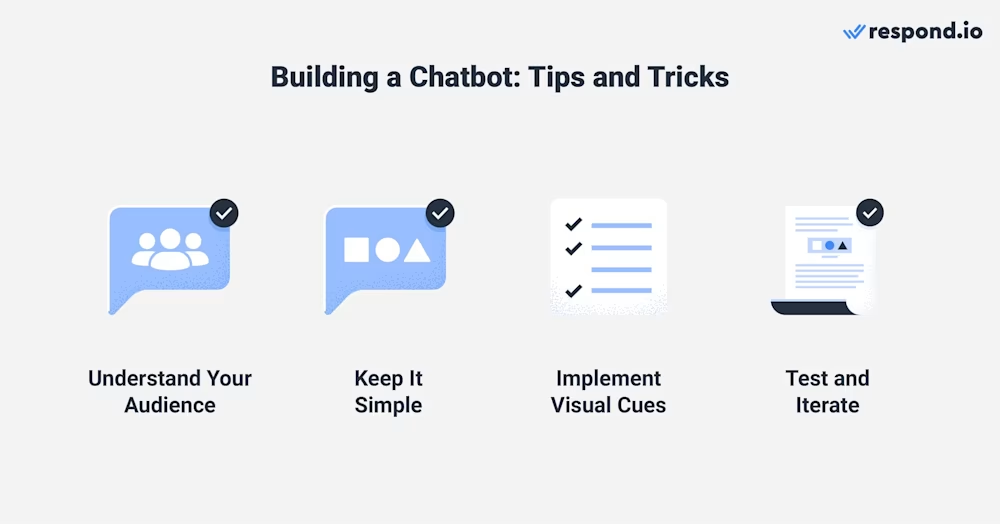
Conoce a tu audiencia.
Antes de empezar a diseñar su chatbot, necesita tener una comprensión clara de su audiencia. ¿Cuáles son sus preguntas típicas? ¿Qué tono de voz resuena con ellos? Entender a tus usuarios es vital para diseñar un chatbot con el que participarán.
Mantén tu chatbot para educación simple.
La complejidad del sistema educativo puede abrumar a los estudiantes. El diseño de tu chatbot debería reflejar simplicidad. Utilice flujos de conversación estructurados con opciones claras y evite jerga que pueda confundir al usuario.
Implementar indicadores visuales
Los indicadores visuales como barras de progreso, marcas de control o indicadores de escritura pueden ayudar a los usuarios a entender dónde están en la conversación y qué esperar a continuación. Estas indicaciones añaden un elemento de interactividad y orientación al usuario.
Prueba e itera tu chatbot para educación.
El diseño es un proceso iterativo. Las pruebas regulares con los usuarios reales e incorporar sus comentarios son esenciales para el éxito de su chatbot. Cada iteración debe tener como objetivo mejorar aún más la experiencia del usuario y optimizar la comunicación.
Desafíos superados en la construcción de chatbots en educación
Si bien los beneficios de los chatbots en educación son significativos, hay desafíos a considerar.
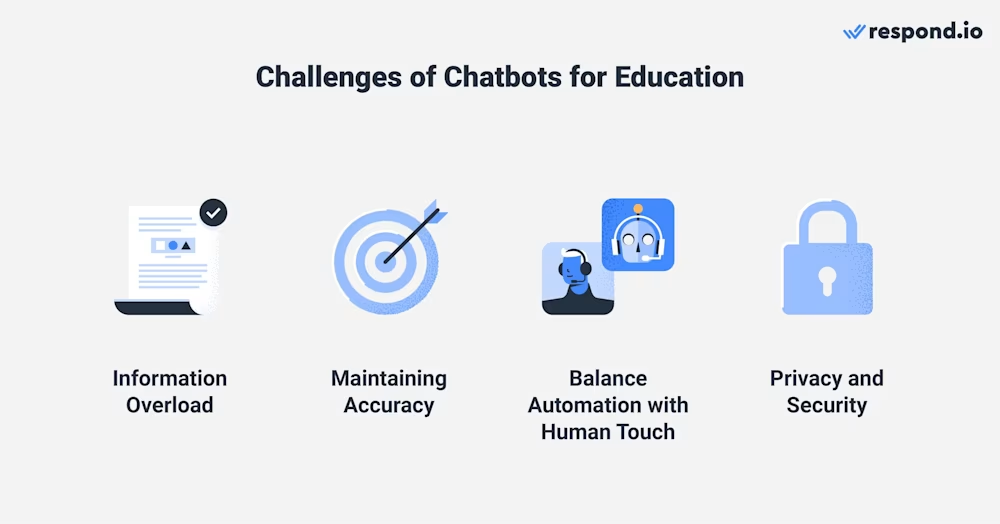
Sobrecarga de información
Las instituciones educativas tienen una gran cantidad de información que ofrecer. Un plan estratégico es esencial para organizar y presentar estos datos a través del chatbot sin sobrecargar al usuario.
Mantener precisión.
Los chatbots deben estar constantemente actualizados con la última información. Los servicios educativos cambian regularmente, y las inexactitudes podrían dar lugar a problemas con los estudiantes o los estudiantes potenciales.
Equilibrar la automatización con el toque humano
Mientras que los chatbots pueden manejar la mayoría de las consultas, habrá momentos en los que un toque humano es necesario. Garantizar que la transferencia del bot al humano es un desafío que requiere un diseño cuidadoso.
Privacidad y seguridad
Proteger los datos de los estudiantes es primordial. Los Chatbots deben diseñarse con estrictos controles de privacidad y seguridad para salvaguardar la información confidencial.
Si estás listo para explorar el potencial de los chatbots en el sector educativo, considera probar respond.io, una plataforma que revoluciona la comunicación con los clientes. Empresas educativas como E4CC, Qobolak y CUHK ya han tenido éxito con respond.io. Regístrese para una prueba gratuita de respond.io.
Convierte las conversaciones de los clientes en crecimiento empresarial con respond.io. ✨
¡Gestiona llamadas, chats y correos electrónicos en un solo lugar!
Preguntas frecuentes sobre Chatbot para la educación
¿Qué características debo buscar en un chatbot educativo?
Busque características tales como procesamiento de lenguaje natural, capacidades de integración con bases de datos escolares, escalabilidad y capacidad para manejar una amplia gama de consultas. Debido a que comprueba todas las cajas, recomendamos respond.io.
¿Pueden los chatbots reemplazar la interacción humana en los entornos educativos?
Los chatbots están destinados a complementar la interacción humana, no a reemplazarla. Por ejemplo, pueden ser muy buenos a la hora de gestionar las consultas de rutina y los clientes potenciales. Pero los agentes humanos deben intervenir cuando se trate de asuntos delicados o complejos.
¿Cómo medir la eficacia de un chatbot en un entorno educativo?
Todas las empresas tienen su propia forma de medir su rendimiento. En el contexto de los chatbots para la educación, la eficacia se mide comúnmente por la reducción de los tiempos de respuesta, la mejora en los resultados de satisfacción de los estudiantes y el volumen de consultas resueltas con éxito.
Lecturas adicionales.
Si te ha gustado esta lectura, entonces revisa estos artículos:
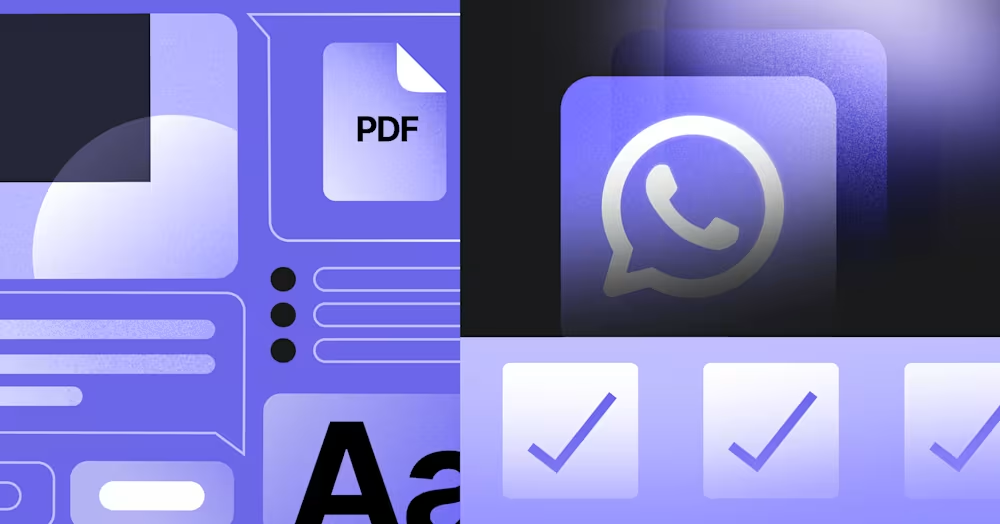



































 Descripción general
Descripción general Electrónico
Electrónico Moda y vestimenta
Moda y vestimenta Muebles
Muebles Joyería
Joyería
 Actividades extracurriculares
Actividades extracurriculares Deportes y fitness
Deportes y fitness
 Centro de belleza
Centro de belleza Clínica dental
Clínica dental Clínica médica
Clínica médica
 Servicios de limpieza y servicio de camareras
Servicios de limpieza y servicio de camareras Fotografía y videografía
Fotografía y videografía
 Minorista de piezas de automóvil
Minorista de piezas de automóvil Concesionario de automóviles
Concesionario de automóviles
 Agencia de viajes y operador turístico
Agencia de viajes y operador turístico

![Chatbot para la educación: Beneficios, Desafíos y Oportunidades [Sept 2024]](https://assets2-proxy.respond.io/ph8r57dk1q9w/5m9j52WNyMYSFEDNdSyuik/f1c4cb8dbd1d989f72bcaea1567ca104/how-to-chatbot-for-education-services-cover_2c7efc1cbf25aa64c4cad5f14cfbc385.jpg?q=70&fm=avif)
